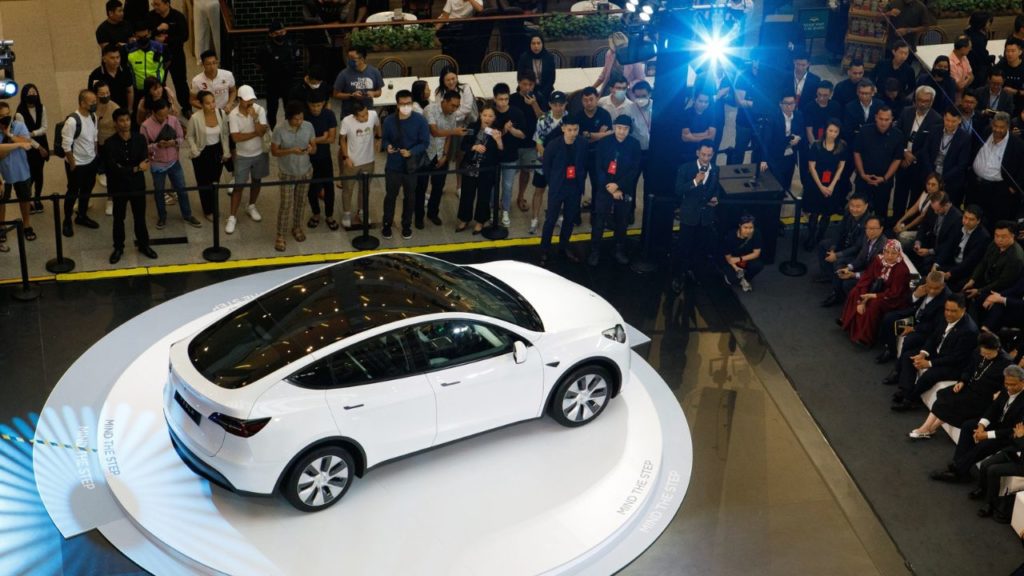EV Tax Credit 2024: Under changes to the law that went into effect Jan. 1, electric vehicle buyers can save $7,500 on taxes at the dealership. It is due April 15 for most taxpayers to claim the tax credit for those who drove an electric vehicle off the lot last year.
Table of Contents
A variety of factors affect your eligibility for this credit, including the vehicle’s price, where it was manufactured when you bought it, and your income.
Since August 2022, the IRS has been releasing fact sheets explaining the credits, which Congress passed as part of new energy legislation.
How does the electric vehicle tax credit work?
Electric vehicle tax credits, or EV credits, are nonrefundable tax credits available to taxpayers who purchase electric vehicles or plug-in hybrids.
You won’t receive a refund of any excess credit amount with nonrefundable tax credits, but they lower your tax liability by the amount of the credit.
It will be possible for taxpayers to claim the tax credit on their federal returns in 2024 or transfer the credit to an eligible dealer.
In the case of transferring the credit, participating dealerships will be able to either lower the vehicle’s cost by the credit amount or provide a cash equivalent to the consumer.
Both options require that your income be below certain thresholds, and the vehicle you plan to purchase must also meet several IRS specifications, including price caps and manufacturing requirements.
Also Read: Tax Day 2024 Deadline: When is the Last Day to File Your Taxes?
What is the best way to get the full $7,500 electric vehicle tax credit?
Only vehicles assembled in North America after Aug. 16, 2022 are eligible for the credit, with some exceptions.
A new law, however, provides both more flexibility and new restrictions. The previous caps on how many vehicles each manufacturer could get the credit have ended, so some Tesla and General Motors vehicles once again qualify.
The law also set vehicle price caps and income limits. If you earn too much, you won’t qualify.
For the credit to apply, EVs must be priced below certain thresholds – $80,000 for SUVs and pickup trucks, and $55,000 for other vehicles.
Also Read: Child Tax Credit: Guidelines for Claiming a Child on Taxes When Married and Filing Separately
Taxpayers with modified adjusted gross incomes above certain thresholds cannot claim the credit:
- For married couples filing jointly, $300,000 is available
- For heads of households, $225,000 is available
- Others will receive $150,000
If you qualify for the credit, you can use your income from the year you take delivery of the vehicle or from the year before.
On April 18, 2023, another rule took effect that limited the credit for battery components and critical minerals. In addition to being eligible for the full $7,500 credit, EVs that meet only one of the requirements may also be eligible for a $3,750 credit.
What are the qualifying EVs?
If you bought your EV in 2023, you must specify whether you took delivery before April 18 or after April 18-when the list shrank.
EV credits are nonrefundable, which means filers cannot get back more than they owe in taxes or carry over excess credits to future years.
Also Read: Families Opting Out of Child Benefit Sparks State Pension Warning: Record High
Are there any new rules for 2024?
You’re transferring your credit to the dealer, so you’re not waiting until you file your tax return to get the credit. Starting this year, buyers can get their tax savings right at the dealership. The dealer must confirm that your specific vehicle qualifies and provide you with an IRS time-of-sale report.
When EVs are purchased through the point-of-sale rebate program, taxpayers must still report their purchase on their tax returns. If their income exceeds the income caps, they’ll have to repay the credit. They’ll need to provide their Social Security number to the dealer and include the car’s vehicle identification number on their tax return.
The IRS says taxpayers can keep the rebate even if they don’t owe taxes.
Does buying a used EV qualify for a tax credit?
Starting in 2023, dealers can provide a 30% tax credit on used EVs priced up to $25,000, up to a maximum credit of $4,000.
Taxpayers with modified adjusted gross income above certain thresholds cannot claim the credit for used electric vehicles:
- In the case of married couples filing jointly, the amount is $150,000
- Heads of households receive $112,500
- For others, $75,000 is required. Other restrictions apply.
- Form 8936, Clean Vehicle Credit, requires the VIN of the EV.
Also Read: Tax Refund Delayed? It Could Take Years – What You Need to Know



